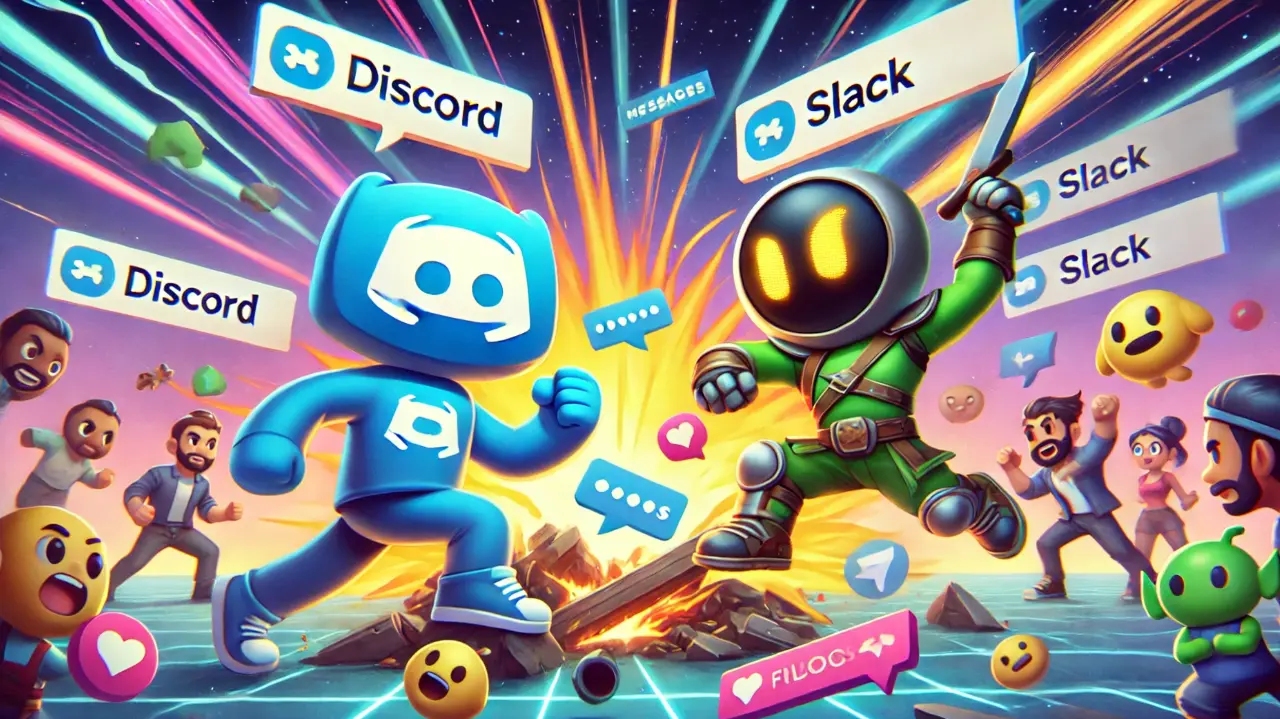Slack Or Discord - The Uneasy Choice You'll Make

Slack and Discord are the two top team collaboration platforms, popular for two entirely different use-cases. Slack is popular among startups for communication among the team members and Discord is popular among gamers for real-time chat.
Both Slack and Discord offer similar feature set and well, they look very similar too. So how should you go about selecting one over the other? Let’s find out.
Slack Vs. Discord - Collaboration or Chat?
Both these platform don’t shy away from the fact that they are the ‘chat’ tools.
Chat tools are meant to solve one problem - NRTC aka Near Real Time Communication. But communication is just a fraction (a big one) of the collaboration.
Your team will need to share documents, assign tasks, set deadlines, send reminders and even comment on the tasks.
Most teams will often have to use other tools like Notion, Asana, Google Workspace for collaboration, task management and tracking.
The problem with chat platforms
Chat platforms, by design, are made to induce FOMO among the team members. You are required to be constantly logged-in and pay attention to the notifications.
Simply miss a day, and you’ll spend at least an hour trying to go through mostly irrelevant chats to find out if you missed anything important.
In addition, once your team crosses 50+ active members count; both these platforms become messy and almost impossible to keep up with - unless if you have the free time to check all the important messages throughout the day.
Slack or Discord : for Community Building
Slack and Discord - both platforms have become popular community building platforms. As someone who’s seen the rise of online communities for the past two decades, I’m stunned.
New community builders who choose Slack or Discord for community building have neglected the power of creating evergreen content and its power to grow communities organically.
Short Content Lifespan
Chats are for real-time communication and they rely on fresh content produced every day. It means that if you write an evergreen article or post - it will lose its importance within hours.
Both these platforms hide their content from Google, and people outside your community have no access to this content.
Limited Content Discoverability
Unless someone actively searches for specific content, the platforms won’t surface it for them. This means, as a community owner or manager, it becomes your job to keep producing new content to keep your members engaged.
No SEO Benefit
SEO is a huge part of the community growth and both Slack and Discord offer zero advantage in this department. User generated content (UGC) is a goldmine to know what questions your users are asking and what are their key pain points.
It directly affects your long-term sustainability as well.
Pricing
Both Discord and Slack offer free tier to get you started, but you should be aware of the limitation and what you’re getting for the price you’re paying.
Discord Free Plan gives you unlimited messaging, voice and video calls for up to 8 participants and file uploads up to 25 MB.
The paid plans start at $2.99/mo/person for higher file upload limits, HD streaming etc.
Slack free plan will keep your messages for only 90 days and limit to 1:1 video calls. The pro plans start at $7.25/user/month (annual billing). This makes Slack unaffordable to use for larger communities.
The Verdict
With the knowledge of limitations, you are now prepared to make the uneasy choice. Go with Slack if you want to chat in real-time with your teammates and don’t mind paying $7.25/mo/member.
Go with Discord if you wish to build a real-time chat community for gamers or build a casual chat-group. The company’s branding confirms that.
Community platform for serious communities
A serious community that wants to retain all its useful member-created content, reap the benefits of SEO for organic growth and wants to keep users engaged without much efforts, should stay away from Discord and Slack. These are chat tools, not community platforms.
There are multiple platforms to build your community - Jatra, Discourse, XenForo and others could be your choice. If you have questions, ask them below.